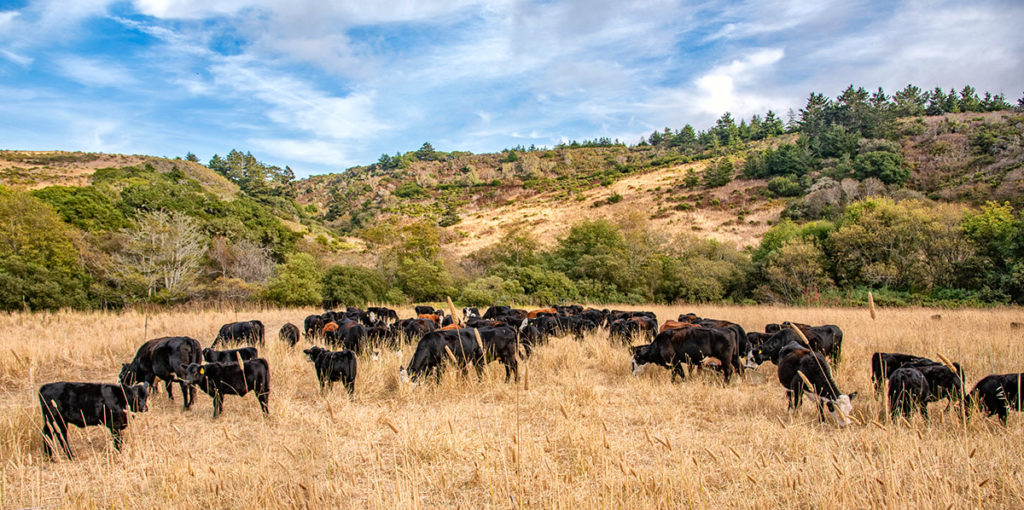Aspiring to Regeneration – A Thank You to Skeptics
By: Kat Taylor
 There is a proverb that says, “If you want to go fast, go alone. If you want to go far, go together.” It is in this spirit that I would like to offer my gratitude to some of our most important collaborators, the skeptics of regenerative agriculture.
There is a proverb that says, “If you want to go fast, go alone. If you want to go far, go together.” It is in this spirit that I would like to offer my gratitude to some of our most important collaborators, the skeptics of regenerative agriculture.
Regenerative agriculture is often confused for a set of concrete practices or easy to understand labels, but it is not that. Regenerative agriculture is an aspiration. It is the honest and continuous pursuit of a food system that nourishes and strengthens all of us and does not rely upon the unsustainable use of natural resources or the unjust treatment of people or animals. At the heart of regenerative agriculture lies a commitment to healthy living soils. We augur that those soils depend upon five aspirations: continuous cover of the soil all year, living roots for as long as the season permits, plant biodiversity including with crop rotations and cover crops, minimal soil disturbance using no/low-till and no chemicals or activities that damage soil, and integrating livestock with managed grazing.
The current food system is not regenerative or even sustainable. For each conventional pound of food consumed we lose 6 – 18 pounds of precious topsoil¹. In the US, farmer suicide rates are more than double that of veterans². Millions across our country do not have consistent access to healthy food, and so many face the sickening and ironic challenges of obesity and hunger. All the while, new, but preventable, catastrophes await us if we do not transform agriculture from a climate change contributor to a climate change solution.

Among reasons our unsustainable food system survives is a lack of transparency. Low prices at the supermarket do not reflect true efficiency; rather they reflect an ill-informed accounting for food’s real cost. A regenerative food system, in contrast, accounts for the full costs and benefits of food and empowers producers and eaters to choose the path that is best for them. Unfortunately, our leaders and public research programs have largely abdicated responsibility for this full-scale accounting and so, for now, individuals must lead the way.
Tom and I have personally funded the research and philanthropy of TomKat Ranch with the hope that its spirit of exploration and open sharing of information will inspire others to do the same in their own communities and contexts. We believe this planet requires and deserves a food system that helps each and every person thrive, that grows more resilient each year, and fosters a beautiful and diverse ecosystem. Advocates like us may not know the exact way there yet, but we are confident of the destination and value of the journey. We are committed to testing, re-testing, and adapting our strategies as we learn more. We are committed to being open to new and even disappointing findings. We are committed to never stopping until we all enjoy a food system that feeds us and our planet.
Like a stone soup, every one of us will contribute a different ingredient to this crucial work. We are deeply grateful to the innovators, practitioners, and researchers who have steadily made the case clear that agriculture can be an effective and scalable solution to many challenges our world faces. And we are also grateful to those who offer their concerns and criticisms and show us where more work must be done. Each and every voice matters because we all share this food system and this planet and each of us has the responsibility to point out where the promise of regenerative agriculture is not yet realized, where undue economic, ecological, or social costs are being unfairly and unsustainably born by people, animals, or the planet.
This is an aspiration we all can share. This work cannot and should not be done alone. We must go far, and we must go together.
Gratefully,